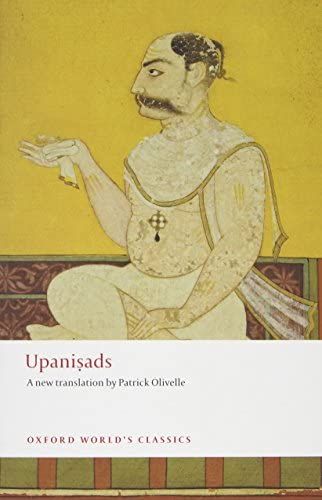
Course Description
What is an Upaniṣad? What do the Upaniṣads actually say? Are they relevant to me?
Join Dr. Varun Khanna for a journey into Upaniṣadic philosophy, asking the questions that are central to the Upaniṣads: Who am I? Why am I here? What is my goal in life? Is there a way to transcend death, and achieve immortality? These fundamental questions and more are addressed in many fascinating ways in the Upaniṣads. In this course, we will carefully study what is traditionally considered the most important Upaniṣad — the Māṇḍūkya Upaniṣad.
The Upaniṣads form the core primary texts for the Indian philosophical school of Vedānta. As Sadānanda Yogīndra describes it in his text Vedāntasāra (Essence of Vedānta), “Vedānta is that which takes the Upaniṣads to be its primary source of knowledge, along with all ancillary texts that help to ascertain what the Upaniṣads say, such as the Brahma Sūtras, etc.” As such, every Vedānta tradition, whether it is dualist or non-dualist, traces its ideas back to the Upaniṣads. Since “Vedānta” literally means “end of the Vedas”, many understand the Upaniṣads to occur at the linear end of the Veda texts. However, this is observably not the case — instead, “end of the Vedas” can also mean the philosophical “end” or culmination of Vedic thought. We will do a deep dive into the content of this philosophical culmination by studying the Māṇḍūkya Upaniṣad in its entirety.
The Māṇḍūkya Upaniṣad is the shortest of the principal Upaniṣads, comprising only 12 verses. In them, the teacher elaborates on the nature of the sacred syllable Om, breaking it into three parts - a, u, and m. Each of these three parts is profoundly and intimately connected to our inner and outer worlds, and comprises all of it. But the teacher says we are made of more than this and takes us one step further — into the nature of the silence that succeeds the utterance of Om, the eternal substratum, which is beyond the universe but which pervades it at the same time. We will elevate our understanding of Om and more through reading this Upaniṣad.
In this course, we will attempt to read the Māṇḍūkya Upaniṣad on its own terms. We will read the words as they are and discuss their historical implications, development, transmission, and philosophical import. We will read line by line, based on the original Sanskrit and Patrick Olivelle’s English translation. Students will leave the course with a better understanding of the structure and content of the Upaniṣads and a deeper appreciation for Upaniṣadic philosophy, as well as a particular knowledge of the unique and important offering of the Māṇḍūkya Upaniṣad.
No prior study of Sanskrit or the Upaniṣads is necessary to participate in the course.

Students Will Receive:
- 12 Pre-recorded class sessions (90 min each)
- 5 YS Credits
- 18 Hours of CE credit with YA
- Course Syllabus (PDF)
- Sanskrit-English translation of the text (PDF)
- 6 Multiple Choice Quizzes
- Yogic Studies Certificate (PDF)
- Access to the private Community Forum
Dr. Varun Khanna
Visiting Assistant Professor of Classics, Swarthmore College
As a pre-med undergrad student, Varun Khanna accidentally stumbled into Sanskrit when he tried to learn Ayurveda during a study abroad program in India. After learning to speak and becoming fluent in the language, he changed direction and became a full-time student of Sanskrit and Indian philosophy. He then traveled through various jungles and cities in India to learn from different Sanskrit gurus, specializing in Pāṇinian Sanskrit grammar. Varun later earned both his master’s degree in Sanskrit and his PhD in Hinduism (studying consciousness in the Upaniṣads) at the University of Cambridge. He has been teaching spoken Sanskrit, Pāṇinian Sanskrit grammar, and topics in Indian philosophy since 2008, and is now a Visiting Assistant Professor of Classics teaching Sanskrit at Swarthmore College.
Varun’s research interests lie at the intersection of Sanskrit and social justice. His latest work centers on thinking through the power dynamics related to the transmission of Sanskrit in academic and non-academic spaces, from the perspective of both the teacher and the student. He has recently launched a sub-field of Sanskrit studies called Critical Sanskrit Studies to host the investigation into Sanskrit and its relationship to power.
This course is eligible for 18 hours of Continued Education (CE) credits with Yoga Alliance

Stay Informed
Sign up for the Yogic Studies mailing list to find out first about upcoming courses, podcast episodes, promotions, events, and the latest research delivered straight to your inbox.





